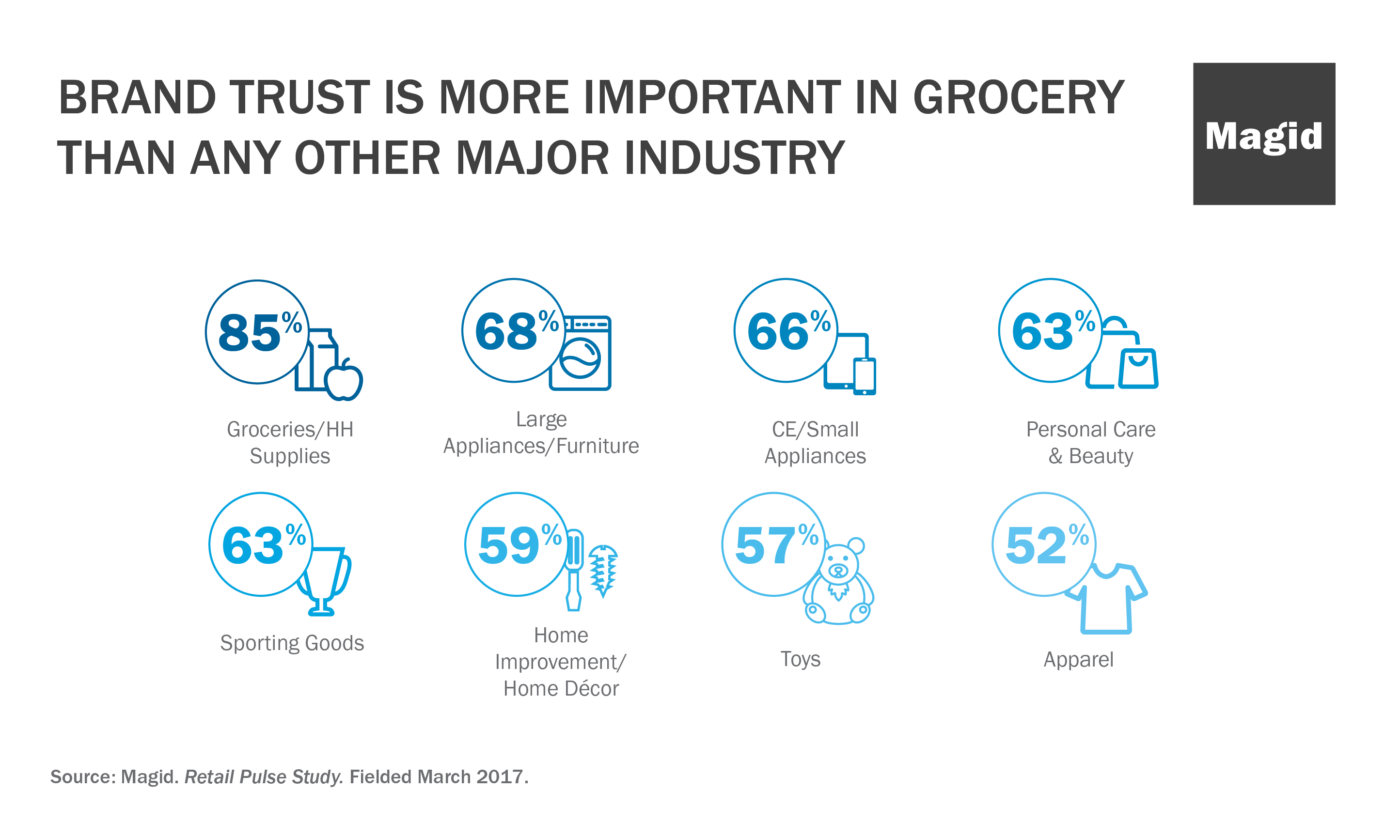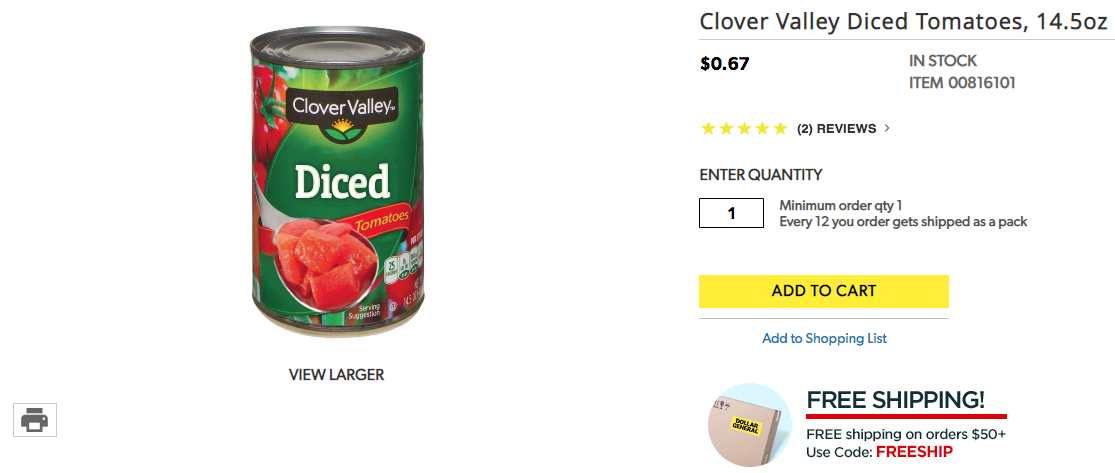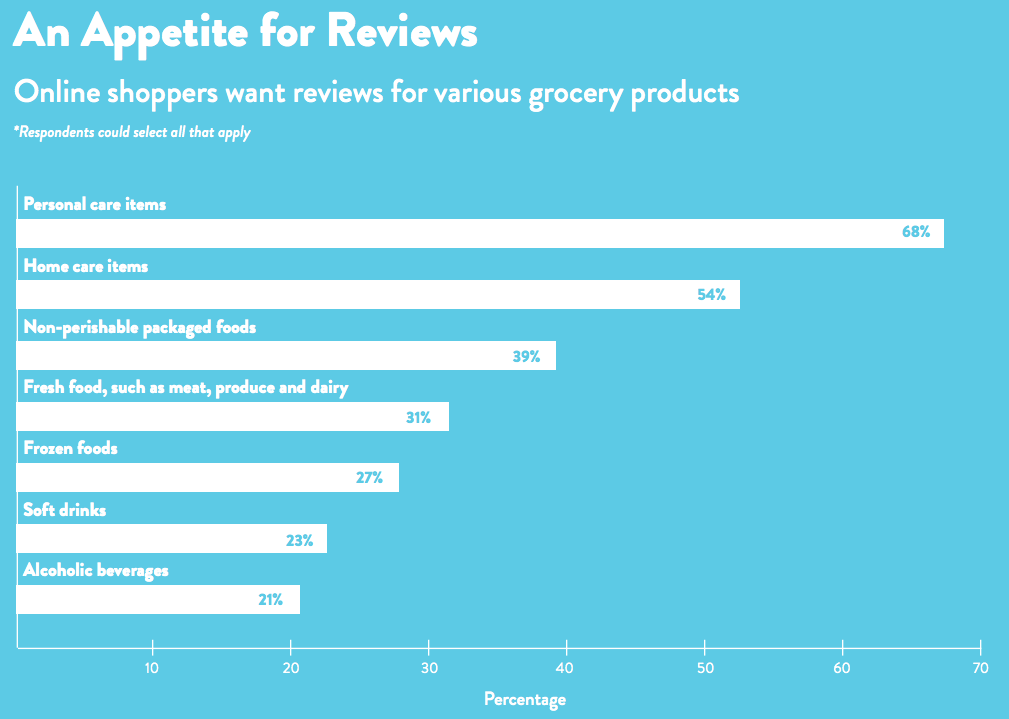The world of private label products, especially in the grocery industry, has seen its fair share of ups and downs. Around half-a-decade ago, Consumer Reports said 93% of U.S. women shoppers chose private label brands to save money. But as the market shifts, consumers are opening their pocket books a bit more, but only if they trust the quality of the products.
And how are shoppers gaining trust on private label brands? It’s all about trust and marketers are continuing to see the power of positive shopper reviews influence these decisions.
We know that every major grocery retailer is focused on improving their margins through marketing their owned brands or private label. So when a shopper chooses to purchase a private label item, the price they pay (and the sales revenue the retailer realizes) is typically much lower than what would be generated by a comparable national brand.
However, the profit the retailer generates is often 5 to 10 times more (and sometimes even higher) than what the national brand produces. It’s no wonder retailers always look for ways to get their shoppers to purchase private label items.
Why Trust is Changing the Private Label Sector
The primary mechanisms for promoting private label revolve around lower prices, advertising in their weekly circular, featuring products on their website and providing placement adjacent to comparable national brands on their physical and digital shelves.
There’s just one problem with these tactics.
None of these approaches address the central obstacle to shoppers trying private label products: trust. Shoppers want to know if the private label product quality is as good as the national brand.
And there’s something to say about the big products ringing in consumers’ ears–people recognize more popular items, are assured of the quality and ultimately, know what they’re getting.

In a study released by the Magid market research firm, data shows that brand trust is more important in grocery than in any other major industry. That’s a 17% jump from the next highest major industry demanding brand trust, appliances and furniture.
So what should grocers be doing to improve their shoppers’ confidence?
How Grocers Drive Trust in Private Label Products
Fortunately, there are solutions that get to the heart of the consumer confidence. In the same Magid marketing report, data further identified the greatest driver of private label penetration as positive shopper reviews.
More than trust in the retailer, the associated savings or good experiences with other similar private label products, shoppers simply trust one another. The opinions of other shoppers who previously purchased the products have a major influence on whether new shoppers are willing to give the private label product a try.
The issue is many retailers who display product reviews actually do not assign any significant resources toward collecting reviews and promoting them for their private label items.
If we take a cursory look at five of the top CPG retailers displaying product reviews, the data illustrates the issue:
- About half of private label items have 0 reviews
- Nearly 20% of private label items have 1 review
- Almost 30% of private label items have 2-49 reviews
- Roughly 1% of private label items have 50+ reviews
Positive Shopper Reviews Add Credence to Private Label Products
We know that private label products depend on trust from consumers, and that the best way to increase assurance is through positive shopper reviews. But how do you implement a review strategy that can reshape your grocery commerce in the private label sector?
Whether or not you’re using a reviews syndication software, it’s important to ask these important questions about your provider. Are they able to collect, display, and moderate grocery product reviews that makes it not only an easy solution for retailers, but also have the ability to accelerate the purchases?

It’s a tall order, but here at PowerReviews, we work with major CPG retailers to do just that. We help these retailers collect, moderate and display meaningful, trustworthy and positive shopper reviews to increase brand trust in private label products.
Even if it’s something as small as diced tomatoes, these reviews help buyers know the quality of products so they don’t hesitate to buy. That’s why we believe informed shopping experience truly help accelerate the path to purchase.

Getting More Authentic & Valuable Reviews
You may already be sold on the value of positive shopper reviews, but you might not know how to increase the content. And it’s important to know the more reviews, the higher trust from consumers with your products.
In fact, the PowerReviews report Beyond the Supermarket Shelves found the threshold for securing shopper trust at the product level is to collect at least 50 reviews. With the average private label product collecting 50 or more reviews at a dismal 1%, CPG Retailers have a long way to go to in order for reviews to have a material impact on their private label sales.
There’s definitely a demand for these grocery reviews as well. PowerReviews data found 39% of consumers would like to have reviews for non-perishable packaged foods. Additionally, 31% said they wanted reviews for fresh food products such as meat, produce and dairy.

This is where we help. PowerReviews is no stranger toward teaming up with CPG retailers to build trust in their private label brands and the national brands they carry. Our core methods for collecting reviews content include:
- Purchase Data: Use loyalty purchase data to identify verified shoppers and solicit reviews via email to collect more information for retailers and their products.
- Product Sampling: Distribute samples to shoppers prior to introducing new products and help ensure review content exists, especially when products reach digital and physical shelves.
- In-store Transactions: Identify targeted products in physical transactions and solicit reviews on register receipts to generate more authentic content from verified purchasers.
- Printed CTAs for Reviews: Promote web product pages through printed call to actions on the physical product packaging and help direct shoppers to the web for review submission.
In Conclusion
Retailers that work to achieve sufficient review coverage for their items can use the content as a marketing tool. This helps draw shoppers to their products through use of the trust factor.
Some retailers have even begun to display shopper ratings and reviews on their physical shelf labels in addition to the digital product pages on their websites and mobile apps. For private label products, you have to easily show shoppers that others not only enjoy your products, but trust you the same way as a national brand.
A concerted focus on collecting and promoting positive product reviews will help retailers expand their private label penetration, improving overall margins. Want to see PowerReviews in action? Reach out to us and request a demo to see how we can help!






